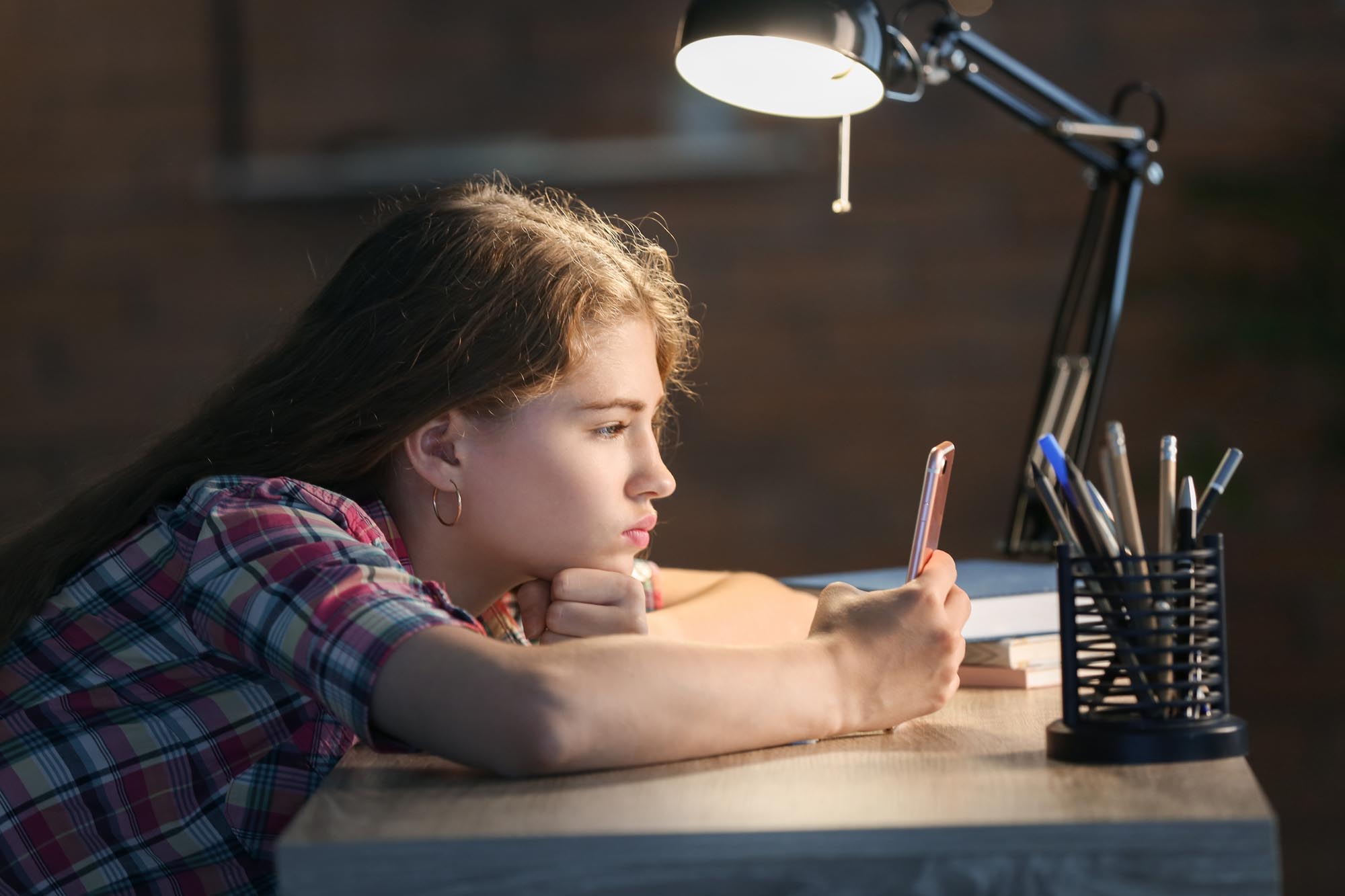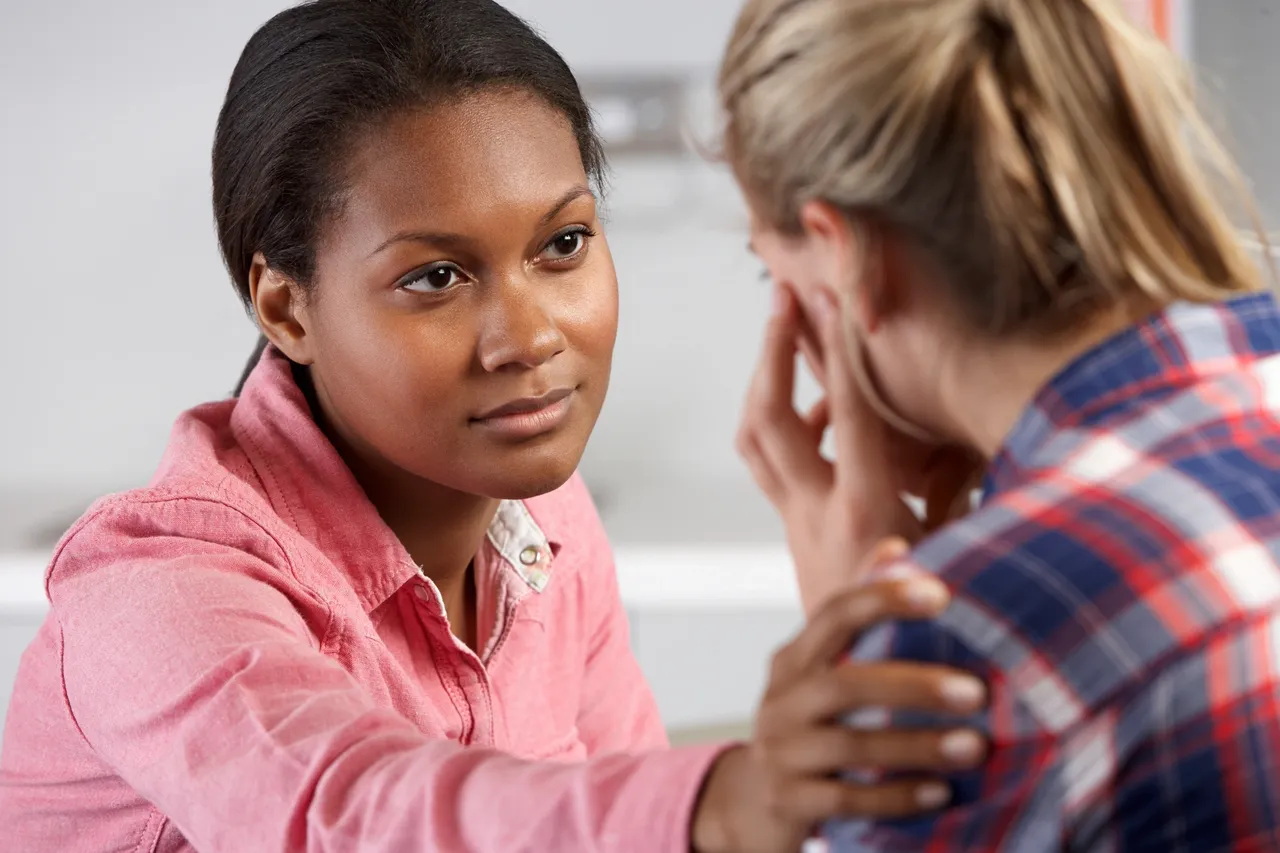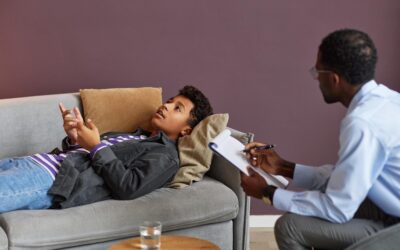As a parent watching your teen struggle with mental health challenges, you’ve likely noticed how their relationship with screens and social media impacts their well-being. When your child enters residential treatment, a digital detox becomes a powerful tool in their healing journey.
Think of a digital detox as pressing the reset button on your teen’s relationship with technology. It’s not about completely eliminating screens—it’s about creating a mindful approach to their use during this crucial healing period. At Build Bright Care Group, we’ve seen how managing screen time helps teens:
- Reduce anxiety and stress levels
- Improve sleep quality
- Enhance real-world connections
- Boost focus and emotional awareness
- Develop healthier coping mechanisms
Your teen’s time in residential treatment offers a unique opportunity to establish balanced technology habits. This protected environment allows them to step back from the constant digital buzz and reconnect with themselves, their peers, and their treatment goals.
Let’s explore how a thoughtful approach to screen time can support your teen’s mental health journey.
Understanding Digital Detox and Its Benefits
A digital detox is a deliberate period of disconnecting from digital devices and social media platforms. Think of it as pressing a reset button for your teen’s relationship with technology. It’s not about completely eliminating screens – it’s about creating a healthier balance.
Key Benefits of Digital Detoxification:
- Reduced Anxiety Levels: Less exposure to social comparison, decreased FOMO (Fear of Missing Out), and lower social media-induced stress.
- Enhanced Mental Clarity: Improved focus and concentration, better decision-making abilities, and increased creativity and problem-solving skills.
- Physical Well-being: Better sleep patterns, reduced eye strain, improved posture, and more physical activity.
Research shows teens who take regular breaks from screens experience significant improvements in their emotional regulation and social connections. A study by the American Academy of Pediatrics found that adolescents who reduced their screen time by just two hours daily reported feeling more energetic and emotionally balanced.
The impact of excessive screen time on teens can be particularly concerning. Extended periods of device use can lead to:
- Disrupted sleep cycles
- Decreased face-to-face interactions
- Potential development of anxiety and depression
- Reduced physical activity
- Difficulty maintaining focus on non-digital tasks
A structured digital detox program within residential treatment provides the perfect environment for teens to develop healthier technology habits while receiving professional support and guidance.
Impact of Technology Overuse on Teen Mental Health
The relationship between technology use and teen mental health has become increasingly concerning. Research shows that teens who spend more than 7 hours daily on screens are twice as likely to experience depression, anxiety, and other mental health challenges.
Here’s what we’re seeing in teens who struggle with excessive screen time:
1. Heightened Anxiety Levels
- Constant social media comparisons
- Fear of missing out (FOMO)
- Cyberbullying exposure
- Performance pressure in online spaces
These factors contribute significantly to the social media and teen mental health issues we’re witnessing today.
2. Increased Stress Responses
- Continuous notification alerts triggering cortisol spikes
- Digital multitasking overwhelming the brain
- Academic pressure from 24/7 connectivity
The dopamine-driven feedback loops created by social media and gaming can lead to technology addiction, making it harder for teens to regulate their emotions and maintain healthy relationships. Many parents notice their teens becoming irritable, withdrawn, or experiencing mood swings when attempting to disconnect.
Studies have linked excessive screen time to:
- Decreased self-esteem
- Impaired social skills
- Difficulty concentrating
- Physical symptoms like headaches and eye strain
These effects can be particularly challenging for teens already dealing with mental health concerns, creating a cycle that’s difficult to break without proper support and guidance. This is where programs like those offered by Build Bright Care Group, a leading teen mental health program in California, can provide valuable assistance. Their comprehensive approach to mental health care aims to help adolescents overcome these challenges in a supportive environment.
Furthermore, the impact of social media on depression in teens is an area that requires serious attention. The constant exposure to curated lives online can lead to feelings of inadequacy and sadness among teenagers.
Strategies for Managing Screen Time in Residential Treatment
At Build Bright Care Group, we’ve developed practical strategies to help teens navigate their digital detox journey. Here’s our proven approach to managing screen time during residential treatment:
Creating Tech-Free Zones
- Designate specific areas as phone-free spaces
- Set up comfortable reading nooks with books and journals
- Create social spaces that encourage face-to-face interaction
- Establish quiet zones for meditation and reflection
Structured Digital Access
- Schedule specific times for necessary device use
- Implement a gradual reduction in screen time
- Use parental controls and monitoring apps when appropriate
- Replace digital activities with engaging alternatives
Healthy Alternative Activities
- Art therapy sessions
- Group outdoor activities
- Physical exercise programs
- Skill-building workshops
- Creative writing exercises
These activities not only serve as a distraction from screens but also play a significant role in treating teen depression, a common issue among adolescents today.
Building New Routines
- Morning meditation instead of checking phones
- Evening journaling to replace social media scrolling
- Regular group activities during typical screen time
- Nature walks during traditional gaming hours
These strategies help teens develop a healthier relationship with technology while building meaningful connections with peers and staff. Our structured approach ensures each teen receives personalized support throughout their digital detox journey, making the transition smoother and more sustainable.
Incorporating Mindfulness and Healthy Habits Post-Detox
Mindfulness practices create a powerful foundation for teens to maintain a balanced relationship with technology after their digital detox. These practices help your teen stay present, aware, and connected to their immediate surroundings rather than feeling pulled toward screens.
Here are essential mindfulness practices that support long-term success:
- Breath awareness exercises – Simple 5-minute breathing sessions help teens pause and reset when feeling the urge to reach for devices
- Body scan meditations – These guided practices increase physical awareness and reduce anxiety-driven tech use
- Mindful walking – Encouraging outdoor walks without devices helps teens notice nature’s details
- Gratitude journaling – Writing down daily moments of joy shifts focus from social media validation
- Creative expression – Art, music, or movement activities channel energy into meaningful offline experiences
Many teens at Build Bright Care Group discover that these mindfulness tools become their “go-to” strategies when facing technology temptations. The key is practicing these techniques regularly during treatment so they become natural habits that stick.
Implementing Effective Screen Time Management Techniques for Better Sleep Regulation
Sleep and technology have a complex relationship, especially when it comes to your teen’s internal body clock. The blue light emitted from screens can disrupt their natural sleep-wake cycle by suppressing melatonin production – the hormone responsible for regulating sleep.
Understanding Blue Light’s Impact:
- Screens emit artificial blue light that mimics daylight
- This light tricks the brain into staying alert
- Natural melatonin production gets delayed
- Sleep quality and quantity suffer as a result
Practical Sleep-Friendly Screen Management:
- Set devices to night mode or warm light settings after sunset
- Create a “tech sunset” routine 2 hours before bedtime
- Keep all devices out of the bedroom during sleep hours
- Replace evening screen time with calming activities like reading or gentle stretching
During residential treatment at Build Bright Care Group, we help teens establish healthy screen habits that support their natural sleep patterns. Our structured environment provides the perfect opportunity to reset their internal clock through consistent routines and mindful technology use.
Sleep-Supporting Activities We Encourage:
- Regular bedtime and wake-up schedule
- Evening wind-down rituals without screens
- Exposure to natural daylight during morning hours
- Relaxation techniques to ease the transition to sleep
These science-backed strategies help teens rebuild their natural sleep rhythms while developing a healthier relationship with technology.
Supporting Recovery Through Balanced Technology Use During and After Residential Treatment
Digital burnout is real, and we see it affecting our teens daily. The constant notifications, endless scrolling, and persistent digital demands can leave your child feeling mentally exhausted and emotionally drained. At Build Bright Care Group, we’ve witnessed how balanced technology use can transform recovery outcomes.
Signs of Digital Burnout in Teens:
- Difficulty concentrating on tasks
- Increased irritability when using devices
- Physical symptoms like headaches and eye strain
- Decreased interest in non-digital activities
Creating a sustainable approach to technology use helps prevent these symptoms while boosting focus and productivity. Here’s what balanced technology use looks like in practice:
Structured Tech Time:
- Designated periods for essential online activities
- Regular breaks using the 20-20-20 rule (every 20 minutes, look at something 20 feet away for 20 seconds)
- Tech-free meal times and social interactions
Focus-Enhancing Strategies:
- Single-tasking instead of multitasking with devices
- Using apps that block distracting notifications
- Creating device-free study zones
- Setting specific times for social media check-ins
We encourage families to maintain these practices after residential treatment. A balanced approach to technology doesn’t mean complete elimination – it means thoughtful integration that supports your teen’s mental health journey.
The Role of Residential Treatment in Facilitating Digital Detox for Teens with Mental Health Challenges
Residential treatment facilities, like those offered by Build Bright Care Group, create a structured environment that’s uniquely positioned to help teens reset their relationship with technology. Our spaces are designed to naturally encourage face-to-face connections and real-world experiences.
Our approach includes:
- Personalized Digital Boundaries: Each teen receives a customized plan that considers their specific mental health needs and current technology habits
- 24/7 Professional Support: Trained staff members guide teens through challenging moments when technology cravings feel overwhelming
- Alternative Activity Programs: Creative workshops, outdoor adventures, and group activities fill the time usually spent on screens
- Skill-Building Sessions: Teens learn practical techniques for managing technology use that they can apply at home
The residential setting provides a rare opportunity for teens to experience life without constant digital connectivity. This “pause” allows them to:
- Rediscover offline interests and hobbies
- Build meaningful in-person relationships
- Develop healthy coping mechanisms
- Practice mindfulness and self-reflection
Our structured environment helps teens recognize how technology affects their mental health while providing tools to create lasting change. Through gentle guidance and consistent support, teens learn to view technology as a tool rather than a necessity. If you’re considering such a transformative experience for your child, don’t hesitate to contact us for more information about our programs.
Conclusion
A digital detox during residential treatment creates a powerful foundation for lasting emotional wellness in teens. This intentional break from technology opens doors to deeper connections, improved mental clarity, and enhanced self-awareness – essential elements for meaningful recovery.
At Build Bright Care Group, we witness the transformative impact of balanced technology use every day. Our teens discover new ways to engage with the world around them, develop healthier coping mechanisms, and build stronger relationships with their peers and family members.
Ready to support your teen’s journey toward digital wellness and emotional balance?
Our compassionate team at Build Bright Care Group is here to help your family navigate this important transition. We provide a nurturing environment where teens can reset their relationship with technology while addressing underlying mental health challenges.
We offer a personalized teen mental health program designed to support teens ages 12-17 in developing healthier relationships with technology and strengthening their emotional well-being. If your teen is dealing with issues such as Teen ADHD, our skilled staff and specialized program can help.
Take the first step today. Contact Build Bright Care Group to learn more about our evidence-based residential treatment program that can assist your teen in their journey towards better mental health and emotional stability.
FAQs (Frequently Asked Questions)
What is a digital detox and how is it used in residential treatment for teens?
A digital detox is a powerful tool used in residential treatment to reset a teen’s relationship with technology. It involves disconnecting from devices and social media to promote mindful screen use, helping teens balance their tech habits, reduce anxiety and stress, and reconnect with themselves, peers, and treatment goals.
What are the benefits of digital detox for teens undergoing residential treatment?
Digital detox offers numerous benefits including reduced anxiety, stress, and fear of missing out (FOMO), improved sleep quality, enhanced mental clarity, better decision-making, increased creativity and problem-solving skills, improved posture and physical activity, emotional regulation, and stronger social connections.
How does excessive screen time impact teen mental health and daily life?
Excessive screen time can disrupt sleep patterns due to blue light exposure suppressing melatonin production, reduce face-to-face interactions leading to social skill challenges, increase anxiety and depression risks linked to social media comparisons, cyberbullying, performance pressure, academic stress, irritability, mood swings, headaches, eye strain, and decrease physical activity and focus on non-digital tasks.
What strategies does Build Bright Care Group implement to manage screen time during residential treatment?
Build Bright Care Group employs strategies such as establishing tech-free zones, structured digital access times, promoting healthy alternative activities and routines like creative workshops and outdoor adventures. They also teach mindfulness practices post-detox including breath awareness meditations, mindful walking, gratitude journaling, and creative expression to maintain balanced technology use.
How does Build Bright Care Group support healthy sleep habits related to technology use in teens?
They educate teens on the effects of blue light on melatonin production and sleep disruption. Sleep-friendly screen management techniques include using night mode or warm light settings after sunset, implementing a ‘tech sunset’ routine two hours before bedtime, removing devices from bedrooms during sleep hours, replacing evening screen time with calming activities like relaxation techniques or reading. Consistent routines with natural daylight exposure in the morning also help reset the internal clock.
What comprehensive services does Build Bright Care Group offer for teens struggling with technology overuse and mental health?
Build Bright Care Group provides personalized mental health programs for teens aged 12-17 that address technology overuse impacts such as depression and anxiety. Their residential treatment includes professional support 24/7 for creating personalized digital boundaries plans, alternative activity programs to foster offline interests and social skills development, skill-building sessions for managing technology use mindfully, all aimed at preventing digital burnout while boosting focus and emotional wellness.











